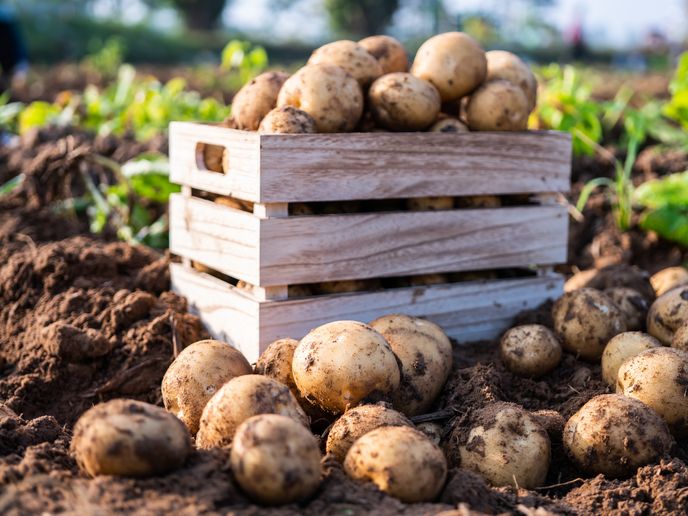The quest for stress-tolerant potatoes
The environmental stresses brought on by climate change could greatly affect the production of potatoes, one of the world’s most important food crops. The EU-funded ADAPT project is developing new strategies to increase potato productivity and quality in the challenging growth conditions of the future. In 2022, two ADAPT project partners, the Austrian Agency for Health and Food Safety (AGES) and Austrian potato seed producing cooperative NOES, carried out field trials with selected potato varieties. The aim was to recommend improvements to standard protocols for testing their value for cultivation or use of potato crops. A total of 16 potato varieties were grown at four different sites in Austria, some of which experienced severe drought during 2022. The crops were planted in April 2022 and harvested between August and September. All the field trial sites were located in the country’s main potato growing regions mostly characterised by hot and dry summers and low annual precipitation. Only one trial site has a maritime-continental climate and higher levels of precipitation. “To reflect the importance of the organic sector in both Austria and the EU, the field trials were partially performed under organic farming conditions,” reports a news item posted on the project website. The 16 varieties were chosen to represent “a wide range of abiotic stress resistance - from tolerant to susceptible,” according to the news item. Eleven varieties obtained from potato breeders NOES, Solana (Germany), HZPC and Meijer (the Netherlands) – all part of the ADAPT team – are being tested for drought and heat tolerance in field trials conducted in Spain and the Netherlands. “Five additional varieties from the NOES are adapted to Austrian environmental conditions and were included based on their potential stress tolerance.”
Testing potato stress resistance
In addition to evaluating the phenotype – the physical characteristics – of the potato varieties, the researchers also adopted a variety of technological methods to identify traits associated with crop response to abiotic stress. These included irrigation, drone flights, environmental sensors and tuberisation process assessment, as well as RNA and molecular analysis. The news item provides further details: “At one drought-prone site, two trials were placed close to each other, with one trial being irrigated and the other receiving no irrigation. At the other three sites, no irrigation was applied, which corresponds to typical potato cultivation practice in Austria … In four trials, drone flights were conducted on June 16 and July 7 … On May 2, environmental sensors including soil sensors were installed at each trial site to measure air and soil temperature, air humidity and soil moisture … Additional plots were established at two sites to evaluate differences in tuberization process among the 16 varieties at three time points … Leaf material for RNA sequencing was collected in late June. Additional leaf material was collected by the University of Vienna for metabolic analysis from the irrigated and non-irrigated trial in early July.” Data from the ADAPT (Accelerated Development of multiple-stress tolerAnt PoTato) field trials are currently being processed at AGES. The data include potato yield, potato quality, drone data and environmental sensor data. In addition, ADAPT coordinator University of Vienna and Slovenian project partner National Institute of Biology are carrying out RNA sequencing and molecular analysis. The same trial design will be repeated in 2023 to validate the 2022 Austrian variety trial results. For more information, please see: ADAPT project website
Keywords
ADAPT, potato, climate, climate change, crop, stress, abiotic stress



